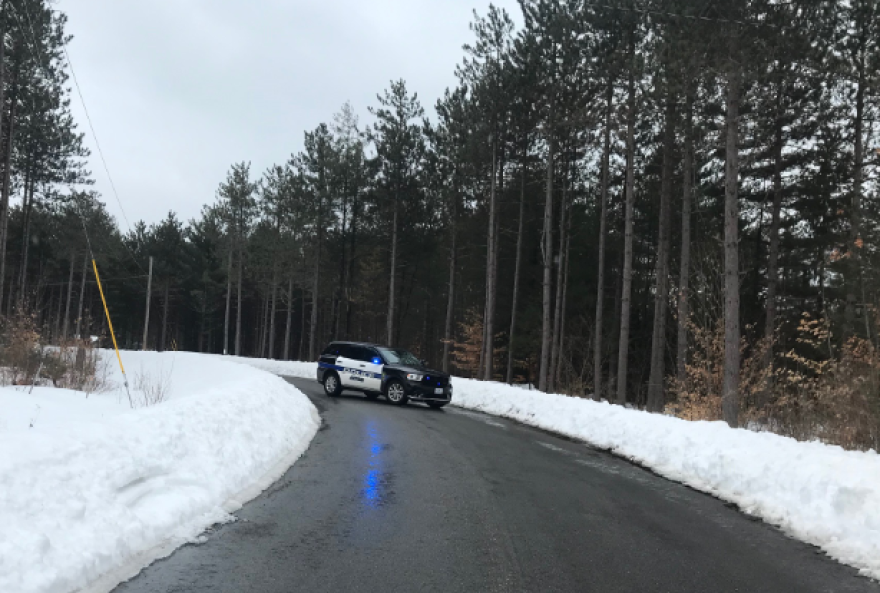The deaths of James and Lizette Eckert on Friday shook the community of Alton, especially because the Attorney General's office says an 11-year-old has been charged under juvenile laws.
Because the alleged shooter is a juvenile, some unusual legal questions arise.
To understand the specific legal considerations in this case NHPR's Peter Biello spoke with former New Hampshire Attorney General Michael Delaney.
Senior Assistant Attorney General Jeff Ward said that the suspect was charged "under juvenile laws" for these deaths. What does that mean in this case -- under juvenile laws?
Because the minor that's been charged in this case is 11, there are really five main differences from how this would be handled if it were a murder case involving an adult.
"I also think it's fair to say that this system is not accustomed to dealing with an 11-year-old that has been accused of committing these types of acts."
The first is the nature of the charge. He has not been charged with a crime. He's been charged with a juvenile offense because he's too young to be charged with a crime. In terms of the location of the proceedings this will go to juvenile court which is administered by the circuit court system in New Hampshire, whereas adults charged with this type of a crime would go to the Superior Court system. The trier of fact will be different.
The facts here will be considered by a juvenile court judge, whereas for adults the facts would be considered by a jury at a jury trial. In terms of public access, this will be a confidential proceeding that won't be open to the public. And finally in terms of how he may be detained prior to the hearing, in juvenile court it is the Department of Health and Human Services that has the authority to determine whether an individual who is a minor should be securely detained prior to an adjudicatory hearing. For adults they can be held in state prison or a county house of corrections which would not be deemed an appropriate place for a minor of this age.
Some of the details as you mentioned will not be public. Why is it especially important to keep details in a case like this sealed?
Well it's considered to be in the best interests of the minor and it's just determined that having the confidentiality of that proceeding, for the family involved and for the child him or herself, just outweighs the public's right to observe those proceedings.
Is the maximum penalty for this lesser because the person involved is a juvenile?
It's not a criminal act, so there would not be criminal penalties even if the juvenile court determined that the minor committed the alleged offenses the most sort of severe consequences that could come would be commitment to the custody of the Department of Health and Human Services for the remainder of that minor's age of minority.
So essentially when the child turns 18 - is that what you're saying?
It is. And in this type of case where it involves a minor and a violent crime, there are circumstances where the state can petition for the juvenile court to retain jurisdiction until the minor turns 21. And if these alleged offenses were deemed to be true, I would expect that very well could happen.
As attorney general, how would you be thinking about making sure that this child is safe and protected, that he gets whatever help he needs and then also making sure that justice is served?
This case will remain in juvenile court for disposition. And the purpose of that system is both to determine what happened, but ultimately to assess based on what happened what the overall needs of that minor are going to be from now on a going-forward basis. Everything from housing to schooling to education to appropriate physical and psychological evaluations - all of those are considerations that are prioritized in the juvenile system. Over and above the adult system which in the first instance is primarily a penal system.
So in your view is the juvenile justice system in New Hampshire properly equipped to handle something like a murder?
I think it is. I think it's the best system we have. I also think it's fair to say that this system is not accustomed to dealing with an 11-year-old that has been accused of committing these types of acts.







